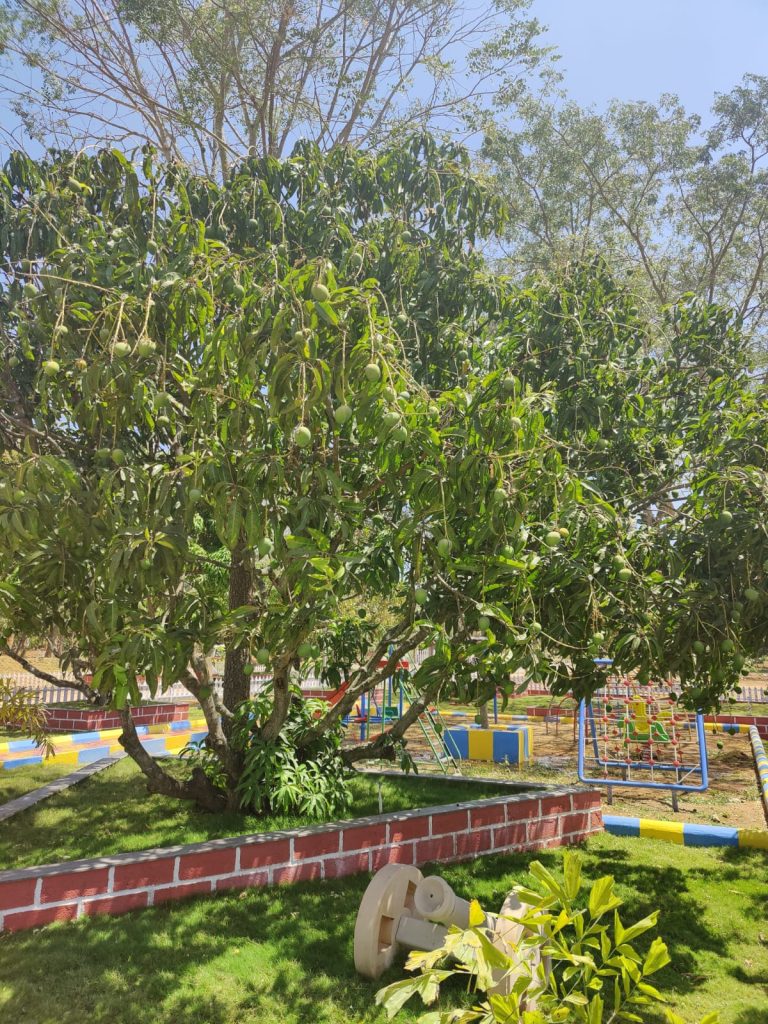
In the vast tapestry of agriculture, managed farmland emerges not only as a source of sustenance but also as a catalyst for local economic development. Beyond its role in food production, managed farmland holds the potential to create rural opportunities and foster sustainable growth. Sharanya Farm is a managed farmland near Mysore Road which emphasises providing various opportunities for the local community and sustainable growth. In this blog, we’ll explore the intricate relationship between managed farmland and rural economic development, exploring how agricultural practices and land management strategies contribute to community prosperity.
The Economic Landscape of Managed Farmland:
Managed farmland serves as the cornerstone of rural economies, generating income streams through various agricultural activities. From crop cultivation and livestock farming to agroforestry and horticulture, diverse farming enterprises contribute to the economic vitality of rural communities. The revenue generated from agricultural production not only sustains farm operations but also circulates within local economies, supporting ancillary industries such as equipment manufacturing, transportation, and food processing.
Creating Employment Opportunities:
One of the most significant impacts of managed farmland on local economic development is its role in job creation. Agriculture remains a labour-intensive sector, offering employment opportunities across the production chain. From farm workers and agronomists to marketing professionals and agribusiness entrepreneurs, the agricultural sector provides livelihoods for a significant portion of the rural workforce. Moreover, as farms embrace technological advancements and modern farming practices, new roles emerge, driving innovation and skill development within rural communities.
Educational Initiatives and Skill Development:
Educational initiatives and skill development programs are often hosted on managed farmlands, acting as educational centres where workshops, training programs, and internships are offered. These programs serve to educate the community on sustainable farming practices while also equipping individuals with valuable skills that support local employment and entrepreneurship. Through these initiatives, community members gain knowledge about sustainable farming methods, the significance of agriculture, and environmental conservation. By fostering a connection with the land, these programs empower individuals to make informed choices regarding food and its effects on both health and the environment.
Farm-to-Table Initiatives:
Managed farmlands significantly benefit local communities through farm-to-table initiatives, directly providing fresh, locally-grown produce to nearby markets, restaurants, and consumers. In doing so, these farms not only stimulate the local economy but also offer residents access to healthier, more sustainable food choices.
Value-Added Agriculture and Rural Entrepreneurship:
Managed farmland not only sustains traditional farming practices but also serves as a platform for rural entrepreneurship and value-added agriculture. By diversifying agricultural production and exploring niche markets, farmers can enhance the value of their products and capture higher returns. Value-added activities such as food processing, artisanal production, and agritourism not only contribute to rural economic growth but also showcase the unique character and identity of local communities. Moreover, initiatives that promote direct-to-consumer sales and farm-to-table experiences strengthen the bond between producers and consumers, fostering a sense of community resilience and sustainability.
Land Stewardship and Environmental Conservation:
In addition to its economic contributions, managed farmland plays a pivotal role in environmental conservation and natural resource management. Sustainable agricultural practices such as conservation tillage, crop rotation, and integrated pest management promote soil health, water quality, and biodiversity conservation. By adopting regenerative farming techniques and embracing agroecological principles, farmers can mitigate environmental degradation and enhance the resilience of rural landscapes. Moreover, initiatives that promote land conservation, wetland restoration, and wildlife habitat preservation contribute to the ecological integrity of rural areas, enriching the natural heritage of future generations.
Summary
Managed farmland serves as a strong supporter of rural economic development, fostering prosperity, and resilience in agricultural communities. By embracing sustainable practices, promoting entrepreneurship, and leveraging local resources, managed farmland can unlock a wealth of opportunities for rural growth and vitality. As we navigate the complexities of a rapidly changing world, the cultivation of prosperity through managed farmland remains a beacon of hope for rural communities worldwide.
Recognizing the pivotal significance of managed farmlands in our lives, whether as farmers, consumers, or stewards of the environment, is paramount. For those in search of the best managed farmland near me and a chance to contribute to environmental sustainability and community welfare, our doors are always open. Join our community in supporting these lands and the communities they sustain, and let’s collaborate to make a positive impact together.